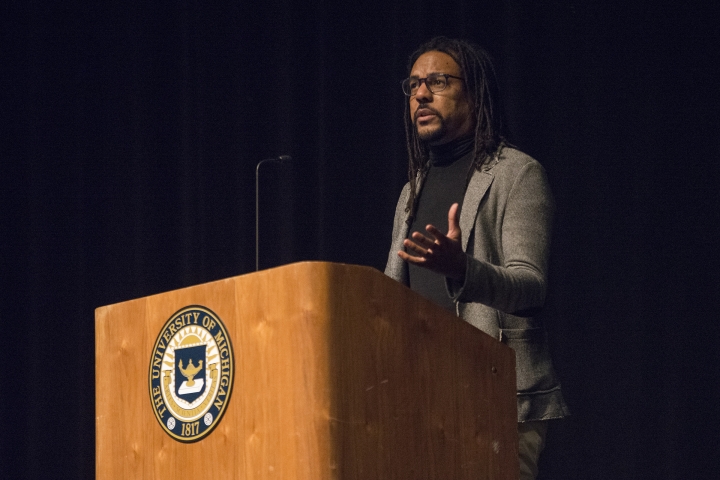
Around 300 gathered in the Lydia Mendelssohn Theater Thursday night to see the 2016 National Book Award-winning novelist Colson Whitehead read passages shining light on the horrors of slavery from his book “The Underground Railroad.”
Throughout his speech, Whitehead explained the novel’s conception; he first thought of writing about slavery in the year 2000, but he didn’t begin writing it until three years ago, when he felt he had matured.
“I knew if I had started then, I would have fucked it up,” Whitehead said. “So I was like, ‘I will wait and write more books and perhaps become a better writer … and hopefully I will be more mature and able to tackle it.’ ”
Whitehead said he is fortunate to be able to use his novel and platform to illustrate the torture and abuse his ancestors and others suffered under slavery in America.
“When I was working on the book, I had to start grappling with the horrors of slavery,” Whitehead said. “I don’t know where my family came from … I don’t know who they were or where they died, but part of writing this book right, writing it good, was honoring them.”
Whitehead also offered commentary on America’s current racial climate, stating the election of Donald Trump as president is proof white supremacy is still prominent in the country.
Whitehead said he believes certain passages of the book, such as when free Blacks are stopped and frisked, have greater meaning now.
“When the election happened, I did start reading different sections from the book,” Whitehead said. “The book sort of does read differently now that we have this sort of re-entrenchment of white supremacy.”
LSA sophomore Colin Page said he attended the event both because he has read “The Underground Railroad” and because one of his professors recommended students attend.
Page said his interest piqued when Whitehead talked about his approach to writing about the theme of oppression, specifically the parallels he drew between race relations during slavery and today.
“I specifically enjoyed when he talked about how he mingled historical aspects of the book with realism in order to comment on society and the oppression he sees that was prevalent 200 years ago, and is still unfortunately very prevalent today,” Page said. “He used the mixture of the two to show the duality between the two ages and how we’re still wrestling with a lot of the same issues that we were.”
LSA freshman Scott Bays echoed Page’s sentiment, saying his major takeaway from Whitehead’s lecture was his use of the past in his novel to draw parallels to and comment on oppression in today’s society.
“I thought it was really interesting how he could use fiction and genre to expand the scope of what he was saying,” Bays said.

